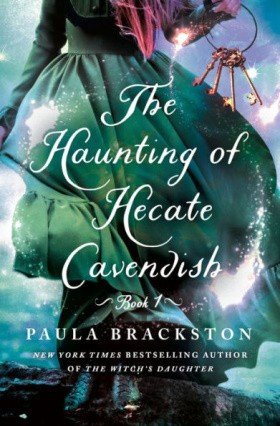
Begin Reading
Table of Contents
About the Author
Copyright Page
Thank you for buying this
St. Martin’s Publishing Group ebook.
To receive special offers, bonus content,
and info on new releases and other great reads,
sign up for our newsletters.
Or visit us online at
us.macmillan.com/newslettersignup
For email updates on the author, click here.
The author and publisher have provided this e-book to you for your personal use only. You may not make this e-book publicly available in any way. Copyright infringement is against the law. If you believe the copy of this e-book you are reading infringes on the author’s copyright, please notify the publisher at: us.macmillanusa.com/piracy.
For Thaddeus and Skyla.
Because being your mum makes writing only the second-best job in the world.

1
HEREFORD, 1881
For more than three hundred years the ancient tomb had housed the remains of its occupant without threat of disturbance. Even the hungry rats and slithering worms had been deterred by its impenetrable walls, so that the cadaver within had, over the long, lonely centuries, quietly and gently turned to nothing more than dry bones. On the outer surface of the sarcophagus, generations of spiders had spun their webs, weaving away in the darkness, their layer of gossamer an external shroud for the long-deceased, long-forgotten person within. For so many years, all had been silent as a grave should be. Untroubled as a soul at peaceful slumber. Dark as the deepwater moment before dawn.
But then came that dawn, rising like a vengeful blaze, splitting the horizon, darkness from light, earth from sky, life from death. Sundering the structures that kept each in its place. Dragging souls from the deep. So that soon, with dreadful, unstoppable progress, the dead would rise.
Hecate had been up at daybreak, following the habit her father had instilled in her. She took after him in so many ways; her striking red hair, her restlessness, her hunger for knowledge, her fascination with things arcane and little understood. It was he who had insisted on her outlandish name, silencing his wife’s protestations that it was heathen and uncivilized.
“My dear,” he had told her quietly but firmly in a voice that would brook no argument, “while I favor the modern pronunciation Hék-atee, the origins of the name are both classical and ancient and all speak of a woman of great fortitude and significance. Would you wish to label your daughter insignificant?” And so it had been decided.
On this particular morning she had good reason to wake early, for this was to be the first day of her new life. The day she would leave the house merely a young woman, but arrive at the cathedral as its new assistant librarian. The thought that she would spend her time with regular access to the magnificent chained library thrilled her. The library was renowned for its collection of antique and obscure books, manuscripts, documents and maps, and it would fall to her to help care for, restore, and catalog them. As if that weren’t reason enough to delight in her appointment as helper to Reverend Thomas, Master of the Library, she would also have the opportunity to study the famous Mappa Mundi. This was the jewel in the collection; one of the oldest and largest medieval maps in existence, filled with mysterious symbols, legends, wonders, and secrets.
Hecate wasted as little time as possible pinning her hair into an acceptable bun and buttoning up her blue woolen dress. The fine floral print and modest lace details on the cuffs stirred in her a mixture of irritation (at the girlish style) and guilt (at being ungrateful for a gown of good quality). The frills and folderols that were a woman’s lot were irksome to her, for she had always considered there were so many more interesting things to be doing than attending to one’s own appearance. She barely glanced in the looking glass, doing so only to confirm that her mother would not complain at her efforts, before descending the wide wooden staircase to the dining room.
The handsome redbrick house she shared with her parents and younger brother, Charlie, was first and foremost a family home, ruled firmly by her mother, Beatrice, but sustained by the gentle benevolence of her father, Edward. While the rooms were well furnished, and carefully chosen paintings and vases left no space undecorated, the priority was for practicality and comfort over elegance and show. Or at least, that was the aim of Mrs. Cavendish. Mr. Cavendish’s fondness for collecting curious objects from his travels over a lifetime as an archeologist fought against this somewhat, so that a bronze Egyptian goddess might find herself sharing a shelf with a Staffordshire china poodle, a desiccated scarab beetle, and a plain wooden box containing fire tapers.
Hecate made straight for the sideboard and helped herself to kedgeree.
On seeing his daughter, her father put down his newspaper.
“Ah, how fares my little Hecate this morning? Are you prepared for your first day of employment?”
“Indeed I am, Father,” she said, taking her seat at the table and tucking into her breakfast.
“I am pleased to see your appetite has not suffered in the excitement,” he said.
Hecate grinned. “I need to keep my strength up. Did you know there are fifty-four steps up the stone spiral staircase to the muniments room?”
“I did not. I shall imagine you springing up them each morning. Of course, you know why it is called such, don’t you?” he asked, testing her gently.
“Because, up until this point, it was used to keep all the title deeds and legal documents relating to the cathedral and the diocese, which are collectively known as muniments.”


























